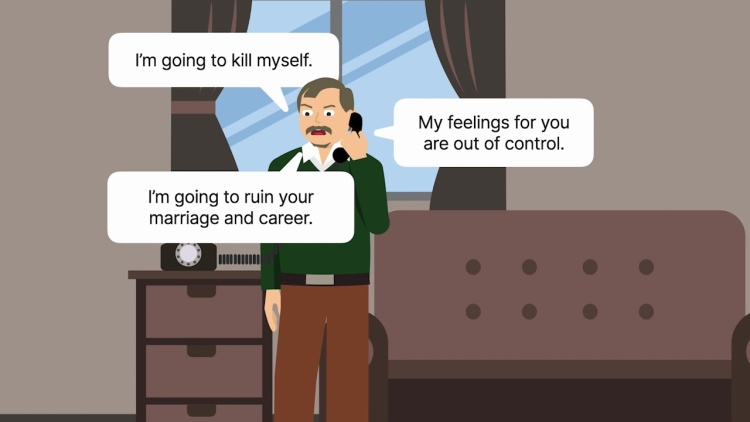State v. Simone
New Hampshire Supreme Court
152 N.H. 755, 887 A.2d 135 (2005)
- Written by Caroline Milne, JD
Facts
Coral Olson worked for the United States Census Bureau, traveling door-to-door to conduct census surveys and following up by telephone or in-person visits as needed. In January 2001, Olson visited Simone’s (defendant) home to conduct a survey. During the visit, Olson gave Simone her business card, which contained her home phone number. Olson also followed up with Simone several times on the phone and once in person. Once Simone’s survey was complete, Simone continued to call Olson. Simone told Olson he was romantically interested in her, but Olson rejected Simone and told him she was married. Olson told Simone to stop contacting her. Simone continued to call, and in August 2001, Olson contacted the police. The police spoke with Simone, but Simone continued contacting Olson. In response, Olson obtained a protective order against Simone. Nevertheless, Simone continued calling Olson and left her multiple phone messages up until June 2003. Simone also sent numerous packages to Olson’s home. Simone admitted to being angry with Olson and stated that he knew he would die in jail. Simone also confessed to having “serious personal problems.” Olson frequently contacted the police about Simone’s unwanted contact during this time. In October 2003, Simone was charged with stalking, and he was later convicted. At trial, Olson had testified that she “live[s] in fear every day” and could not predict what Simone would do next. On appeal, Simone argued that the evidence was insufficient to show that Simone’s conduct would cause a reasonable person to fear for his or her safety or that his conduct actually caused Olson to fear for her safety.
Rule of Law
Issue
Holding and Reasoning (Dalianis, J.)
What to do next…
Here's why 911,000 law students have relied on our case briefs:
- Written by law professors and practitioners, not other law students. 47,100 briefs, keyed to 997 casebooks. Top-notch customer support.
- The right amount of information, includes the facts, issues, rule of law, holding and reasoning, and any concurrences and dissents.
- Access in your classes, works on your mobile and tablet. Massive library of related video lessons and high quality multiple-choice questions.
- Easy to use, uniform format for every case brief. Written in plain English, not in legalese. Our briefs summarize and simplify; they don’t just repeat the court’s language.





